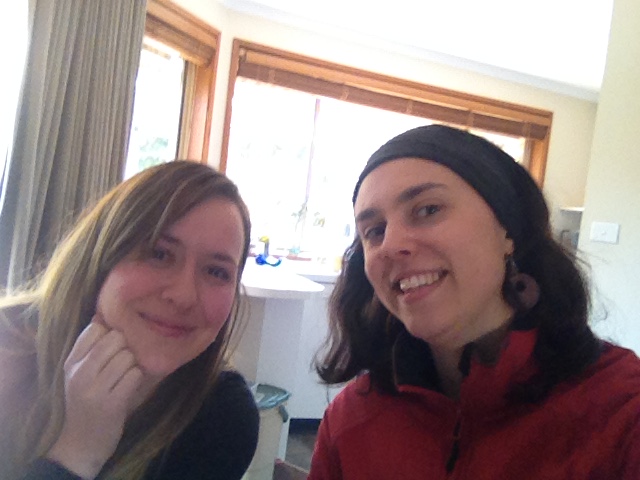We perhaps have not fully appreciated until recently that the CEED leadership program is quite unique, in that it has an explicit focus on developing leaders early in their career. As we saw in the recent Conservation Leadership symposium at the 27th International Congress for Conservation Biology, many of the other existing conservation leadership programs are tailored for Masters students, and particularly those who are interested in pursuing a career in the NGO sector. Although we are all based at research institutions at the moment, the skills we are gaining through the program are transferable to a range of other sectors. We are being trained to become leaders in whatever career we choose to pursue in the future.
Leadership in science seems to be most often associated with a scientist’s career stage – that is, academic or faculty members who lead research groups are generally regarded as those in “leadership” positions. For example, this recent piece by Leiserson and McVinny in Nature argued that “Science professors need leadership training”:
Education does not stop. Professors must update and develop their technical skills throughout their careers. But as they progress, few take the time — or are offered the opportunity — to become educated in how to be an effective leader. […]
Leaders should inspire others to achieve clearly articulated, shared goals. Professors head research teams and manage teaching staff. They lead intellectually, charting directions for advances in engineering and science that benefit society.
And the importance of these leadership skills grows as scientists gain in seniority.
While we certainly agree with the need for ongoing training and professional development in science, Leiserson and McVinny’s definition of who are scientific “leaders” (i.e. professors) doesn’t resonate with what we’ve learned in the CEED program. We also couldn’t find any other articles in Nature or elsewhere which highlighted the benefits of leadership training for those early in their careers (apart from this piece by Kvaskoff and McKay, but here the discussion was again limited to academia only).
So, we thought we would write a response to Leiserson and McVinny, and submitted a Correspondence to Nature. Unfortunately, since #rejectionistherule, we weren’t successful in getting it published. But thanks to the internet (and this blog – thanks Matt!), we can publish it here for all to see.
Although we didn’t get it into Nature, writing this piece together was a great experience, as it generated a lot of discussion amongst our group and helped to crystalise our thoughts on what “leadership” really means in science.
……………………………
Leiserson and McVinny advocate for leadership training to assist senior scientists to effectively manage research teams. While important at senior levels, this “lifelong learning” is particularly relevant for Early Career Researchers (ECRs): graduate students and postdoctoral fellows. As ECRs engaged in a year-long leadership training program, funded in part by an Australian Research Council Centre of Excellence, we attest to its importance for our ongoing professional development.
Leadership development for ECRs offers immediate benefits for individuals and provides a foundation for building a successful and fulfilling career. It also strengthens collaborative partnerships. Consider Leiserson and McVinny’s example where the professor uses leadership skills to “up the game” of her research group by being attuned to her student’s preferences. If her students and postdocs were also trained in leadership skills, such as listening, flexible thinking, problem-solving and conflict management, the relationship between the research group and professor would be more collaborative, less hierarchical, and likely more productive.
The ECR phase of a scientific career is also the entry point for more equitable access to leadership training. Science is plagued by an uneven gender balance in senior roles, and offering leadership training only at a senior level reinforces gender biases in opportunities for career advancement. Providing leadership training to ECRs is therefore an important step towards redressing the uneven gender balance in senior academic roles.
The benefits of making ECR leadership training a priority extend beyond academia, as the vast majority of science graduates are finding careers in industry, government and non-government organisations. Training at the ECR level will ensure that graduates have the potential to become strong leaders in all sectors of society.
With a number of calls to update graduate training, dedicated leadership training for ECRs must be considered a high priority.


 RSS Feed
RSS Feed
